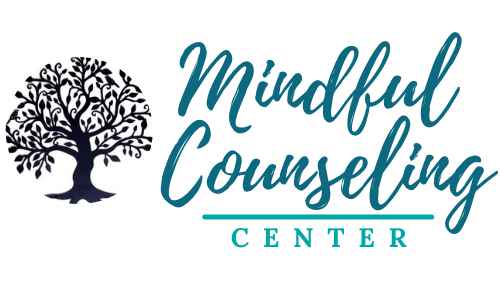Build Your Mindfulness Skills

Mindfulness practices are meant to foster an increased awareness of the presence of thoughts and feelings, as well as body sensations, without judgment.
The last part of the above sentence—without judgment—is often a challenging piece of practicing mindfulness.
When a troubling or worrisome thought appears in your mind, it can lead to increased feelings of overwhelm as well as negative judgment about yourself and/or others. Self-focused judgment can appear as harsh criticism. For example, you might be familiar with these self-criticisms in reaction to thoughts and feelings you are experiencing that you perceive as distressing or otherwise negative:
- “I’m not good enough”
- “I’ll never be able to….”
- “I’m not smart enough”
Through practicing mindfulness, we have the capacity to notice our inner dialogue and emotional “temperature.” Sometimes we are able to notice after the fact – in other words, after the sensations, thoughts and emotions have passed. Sometimes writing/journaling can be helpful in raising awareness, as can talking with a trusted person in your life, be it a partner, friend, family member, or therapist.
Mindful awareness is a practice, requiring patience and a willingness to persist to build your skill and develop the habit of being mindful.
Try incorporating a sense of curiosity into how you go about building your mindfulness practice. One of the common roadblocks I see in my work as a psycho therapist is frustration with having difficult, uncomfortable, or unwelcome thoughts and feelings, as well as a desire to get rid of, or move away from, the associated mental and physical discomfort.
It can be helpful to keep in mind that your thoughts and feelings–ones you consider good, bad, or neutral–are normal and natural functions of your brain and your body. They are part of how you are built as a human.
When in the midst of a “storm” of thoughts, feelings, and body sensations that are experienced as distressing, it can be especially difficult to remind yourself that these experiences are simply functions of how you are built, and that they will come and go at some point. At these times, I find two mindfulness practices especially helpful.
- One is called “dropping anchor” (a grounding exercise for the mind and body).
- The other is called “compassionate-noticing (which facilitates self-compassion).
These practices will be the subject of the next two Mindful Counseling Center blogs. Subscribe to the center’s social media for notification of the release of these blogs on Facebook, Instagram, and Linked In. Once released, you will be able to access these articles via the Mindfulness Series Blogs.
If you are interested in counseling that introduces you to mindfulness as a vehicle to cope with everyday stress and helps you build mindfulness skills and habits, reach out to me at the Relationship Institute of New Jersey. I also periodically offer psycho-educational courses to promote mental health that weave in mindfulness practices. You can get on my mailing list to receive updates about upcoming courses.
Article by Patrick R. Connelly, LCSW and Certified Gottman Therapist.. Patrick is the CEO/Owner of the Mindful Counseling Center and Owner/Psychotherapist of the Relationship Institute of New Jersey.
